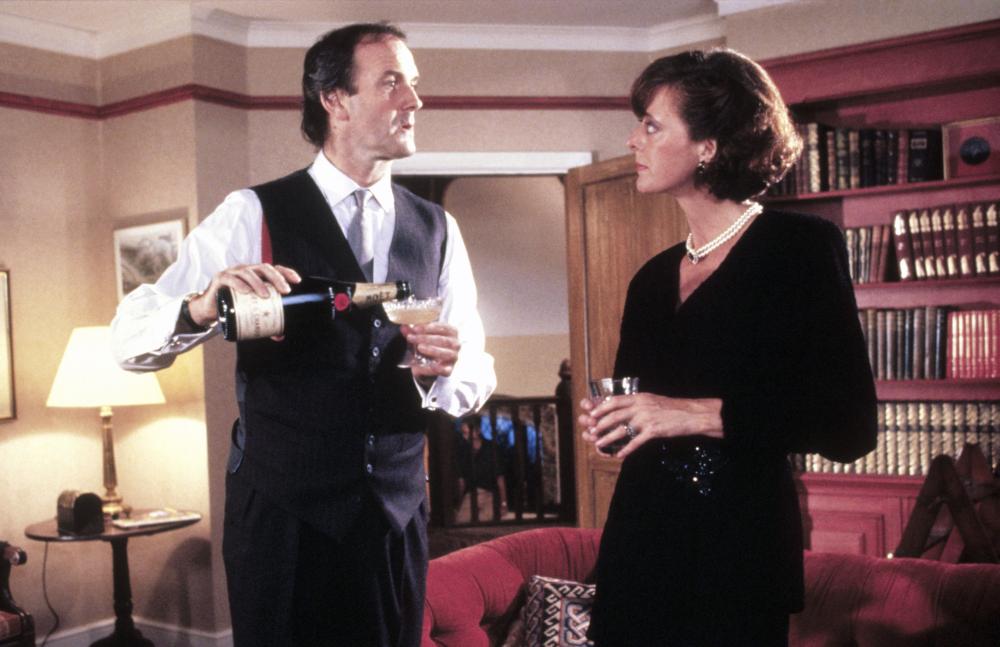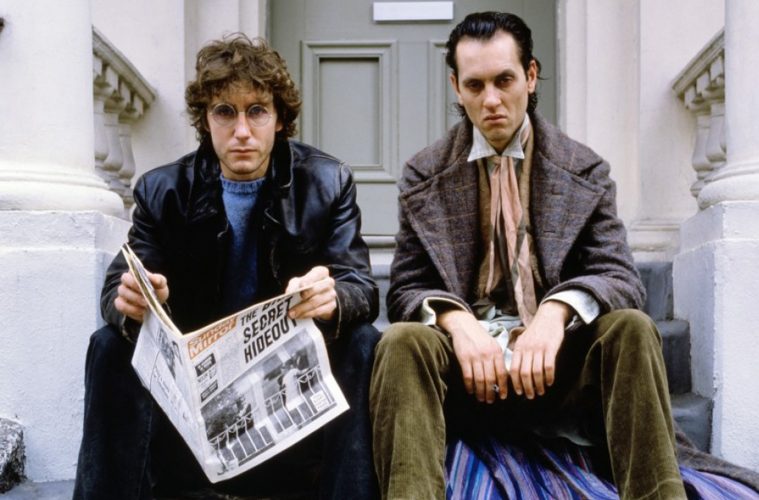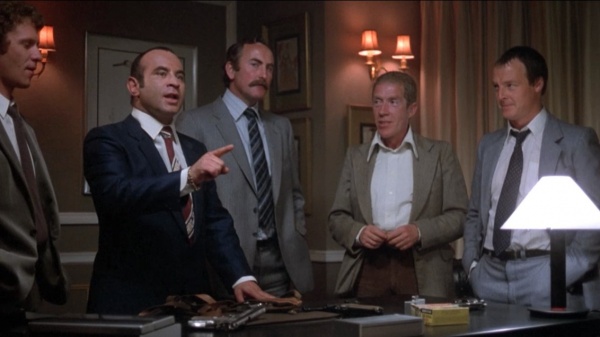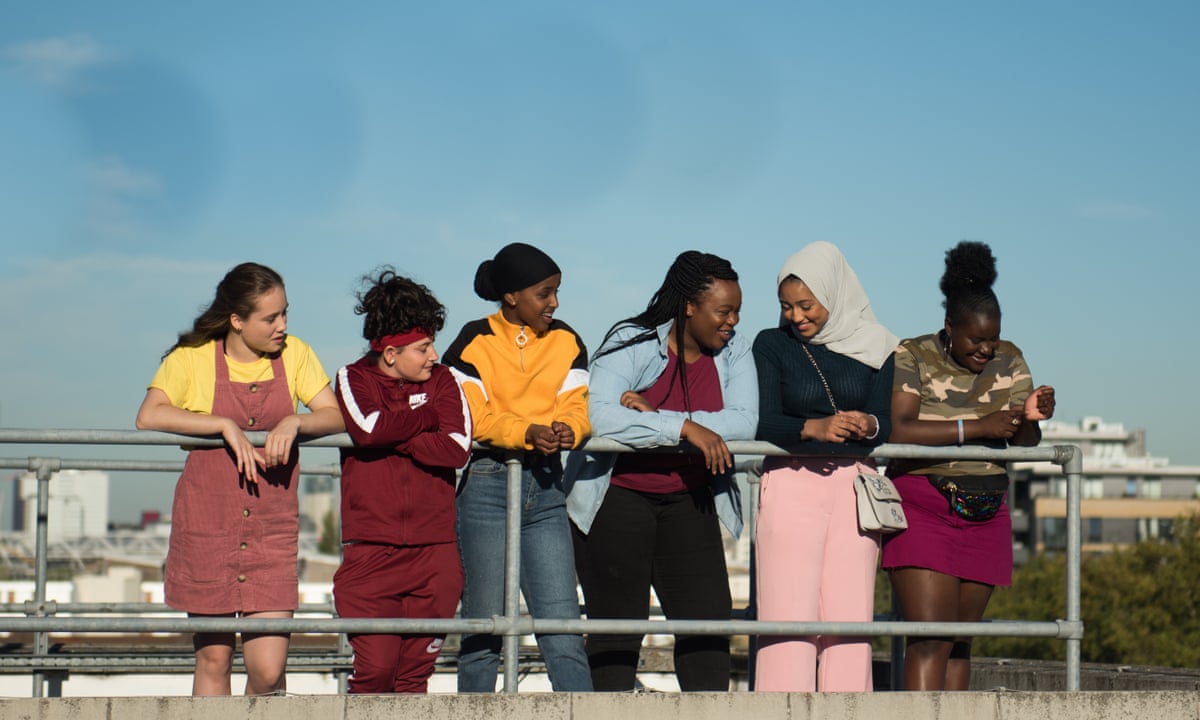5. A Fish Called Wanda (1988)

When two members of the Python’s get together to create a film there is always a general level of excitement about seeing members of the legendary comedy troupe. However, A Fish Called Wanda was way more than a reunion between old friends.
The film perfectly mixes the humour that made Monty Python so enduring and the hilarity of British pompousness in one fell swoop. As barrister Archie Leach falls in love with his client Wanda Gershwitz, it triggers off a crime caper story of incredible coincidence and baffling idiocy.
What the film does so well is use London’s areas to bring across the cultural differences between the characters – where John Cleese’s Leach is very posh and works in the landmark filled city, Michael Palin’s thief, Ken Pile, is further hidden in the backstreets where a lot of dodgy characters are found.
Kevin Kline won an Oscar for his brash American portrayal of thief Otto West, while John Cleese and Charles Crichton were nominated for Best Original Screenplay.
4. Withnail & I (1987)

When it comes to biting comedy and sharp acerbic wit, Britain does have a fantastic track record of producing writers that can harness that language and use it to hilarious ends.
Withnail & I is the story of two friends who decide to get out of their dingy London flat and go to the country for the weekend, arguing as they do it. The film’s use of homosexuality, its casual drug use, and its grim portrayal of the countryside are all mixed to unapologetically portray a delightfully dreary set of lives lived in London. Whilst the humour masks all of the pain behind the characters of the film, there is something more sinister that flows through Withnail at times.
The sharpness of the writing and the uninspired colour palette of the visuals contrast with one another brilliantly in the film, as it shows off a dank looking London, as well as an even worse looking countryside. While Paul McGann and Richard Griffiths are great in the film, it is Richard E. Grant’s Withnail that steals every scene. The tragic moron with no sense of anything but his selfishness was an inspirational character who has gone down in the fabric of British culture.
Bruce Robinson’s screenplay set the tone for so many productions to come in British TV & film to come. Whilst Withnail & I may only have been a moderate success at the time, it later attained the status as a cult classic that has influenced British comedy immensely since its release in 1987.
3. The Long Good Friday (1981)

For a certain generation, The Long Good Friday is the best British gangster film period. Now, whilst the years have seen people like Guy Ritchie and Matthew Vaughn come along with their spin on British gangsters, it is hard to argue that The Long Good Friday isn’t the general inspiration for all of them.
When Harold Shand faces the prospect of losing his dealings with the US Mafia over an IRA plot that went wrong, his world becomes increasingly tenser as the IRA start to outright attack his businesses and residence in retaliation.
Whilst the script and direction of the film by Barrie Keeffe and John Mackenzie are airtight, it is Bob Hoskins’ Shand that brings the audience in. He slowly makes them start rooting for him and his goal of becoming legitimate, before showing just how shockingly violent he is. This is the reason why the film works so well, it is hard not to care about Harold as his empire falls apart, and deep down everybody wants to see him get away free. London plays its part as the unnerving streets start to close in on Harold and his life, not knowing where the next strike is going to come from, which makes the city an uneasy kingdom throughout.
The impact the film had on the UK film industry, as well as the careers of those involved, was massive. Hoskins wrote his name into British film history forever, Helen Mirren’s career took off after the release of the film, and if you look closely there is a fresh-faced Pierce Brosnan in there too.
2. Rocks (2019)

Rocks might be a newer film than the rest here, however, the story and visceral heft with which it is told makes it heart-wrenchingly catastrophic, and culturally poignant. Set in London’s East End, Rocks is the story of high-school student Olushola ‘Rocks’ Omotoso, whose mother leaves her and her little brother to fend for themselves.
As the audience slowly watches Rocks struggle and fight to get money to keep her and her brother together, there is an underlying feeling of dread that there is only one outcome for the pair as they find themselves homeless.
The performances by Bukky Bakray as Rocks, and Kosar Ali as her best friend Sumaya, saw them both nominated for BAFTA awards. The way they both bring across the reality of their backgrounds as well as the marginalisation of their ethnic cultures in London is incredible.
Sarah Gavron’s powerful direction is felt through our leading characters here, as she directed the film in chronological order while allowing for extraordinary improvisation from her actors. The film was nominated for seven BAFTA awards and was acclaimed for bringing across the struggles of teenage girls, as well as those in less desirable areas.
1. Fish Tank (2009)

Fish Tank is a film that brings across the harsh realities of being poor and a part of the welfare state in London for a teenager with no other choice. Through the film, we follow Mia Williams, who is an angry and foul-mouthed 15-year-old that lives in a council flat with her mum and little sister.
As Mia’s life unfolds, we come to realise that she is nothing more than a victim of her upbringing. She isn’t an inherently bad person – she is just one that feels unloved and alone with no sense of escape.
The film’s commitment to realism and the perfect script written by Andrea Arnold mean that the picture is profoundly emotional, and even as we would wish for a better life for the misunderstood Mia, we know that it just isn’t going to come.
The performances in the film are extraordinary, and a young Michael Fassbender showcases a role that has such charm yet underlying villainy to it, that it is easy to get brought in by his hearty smile. However, the real stand-out is Katie Jarvis, who plays Mia herself. Her portrayal of Mia’s attitudes and subtle pain is brought across with such a delicacy that it makes her life all the more tragic – as we know that in a lot of ways she could do better but her background restricts her self-worth to a point where all she knows is disappointment.